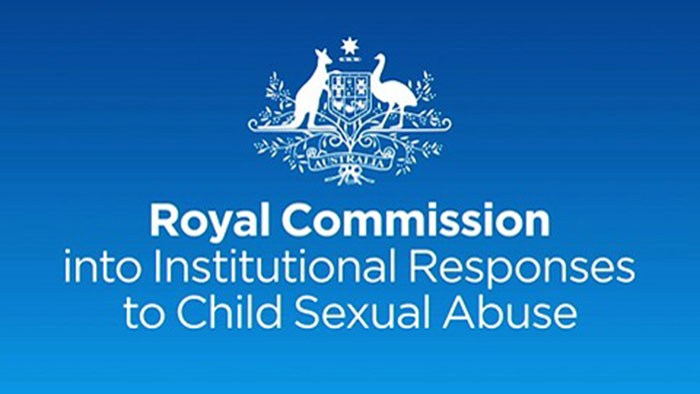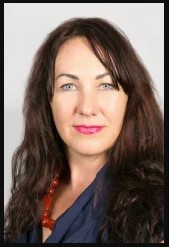It is my pleasure to respond to the podcast interview with Dr Kathleen McPhillips of the University of Newcastle. For years, Dr McPhillips has borne witness to the testimonies of survivors of religious and other institutional abuses through her often uncomfortable attendance at the Inquiry into matters relating to the police investigation of certain child sexual abuse allegations in the Catholic Diocese of Maitland-Newcastle and the Australian Royal Commission into Institutional Responses to Child Sexual Abuse (the Royal Commission). Dr McPhillips’s work with survivors in her home town of Newcastle, New South Wales, is greatly appreciated in academic and survivor communities, and it is inspiring to see her empathetic research reach public audiences through the recent launch of her own podcast, The Survivor Story Podcast.
In her interview, Kathleen reflects on the recent hearings of the Royal Commission and how it has worked to break down the stigma associated with child sexual abuse that was routinely weaponised against children as victims, and adults as survivors, by the institutions entrusted with their care and, often, their spiritual education. McPhillips refers here to the seminal work of Erving Goffman and his observations of how stigma functions to ‘spoil’ identities as perceived by the self in relation to the ‘normal’ or unstigmatised majority. As Kathleen wryly observes, stigma is not simply a function of the moral cohesion of communities. It is a defensive strategy deployed by the ‘normal’ regime to deflect blame and criticism, and deter investigations, in this case by the many religious institutions revealed to have harboured criminals and criminogenic cultures throughout the 20th century.
Stigma infects victims and survivors and perpetuates itself through its contagion among those adjacent to direct harm, including religious believers and parishioners, family and community members who do not always understand or acknowledge the hold stigma has taken over their perceptions. One of the great ontological questions to arise from the religious child abuse crisis of the 21st century is: how did we not see that our children were abused? Stigma, its contagion and pernicious mutations, is one key to understanding this great moral failure in which we all share as members of society.
The Royal Commission and comparable international initiatives, like the Commission into Child Abuse in Ireland and the Independent Inquiry into Child Sexual Abuse in England and Wales, signifies a watershed in public responses to revelations of stigmatised victimisations such as child sexual abuse. The relentless publicness of the Royal Commission hearings, televised, live-streamed, documented, transcribed, uploaded and tweeted, represented a profound volte-face on religious (defensive, minority-oriented) dominance of abuse narratives, stigma transmitted from perpetrators to victims and bystanders, and the deepest secrecies that characterise the very nature of child abuse.
This publicness associated with the myriad of legal and policy reforms and recommendations concerning institutional liability produced by the Royal Commission has transformed the narrative on child sexual abuse, perhaps in lasting ways. From the most private of harms to the most public of investigations – at least in Australia – the journey of religious survivors has been at times of their volition and at other times driven by political and pragmatic imperatives. An investigation such as the Royal Commission will always be limited in terms of its resources, scope and the imaginations of those who drove and devised it at the level of the Commonwealth government. The notion that a ‘truth commission’ might be one way to come to terms with widespread systemic violations is one that stemmed from necessity as invention in the context of the brutal regimes changes in democratising South America in the 1990s. When installing or aiming for peace and democracy, exactly what should one do with the ousted regime, and how might one begin to promise a sense of justice for its masses of victims tortured and yet somehow still standing?
These are among the formative questions of transitional justice, which aims to balance the needs of peace and security with individual justice responses. When deployed in peacetime consolidated democracies, truth commissions, or truth and reconciliation commissions, take on a modified mandate less concerned with replacing a regime in its entirety (the Churches are going nowhere in Australia) and focused more on somehow weaving a sense of transition from the unbearable past to a brighter future. And yet, the past was not unbearable. It was borne by those who were victimised by it and it continues for those who survive, marked often by their experiences diagnosed and described by the pathologising categories of the medical professions.
The lasting effects of trauma and its intergenerational apparitions, which Kathleen has documented, complicate the narratives of transitioning from the past to the present that underpin the most optimistic ideals of truth and reconciliation commissions. It is undoubtedly important, in fact very important, to proclaim: never again. It is equally important to acknowledge: we know this continues for you.
The Royal Commission strove to incorporate trauma-informed principles as best it could while representing a judicial arm of the state whose role in granting the Churches free and often unchecked reign over children’s wellbeing and safety is a neglected aspect of the whole dire system in Australia. Royal Commission officers and staff were ‘aware of the diverse and far-reaching impacts of childhood trauma on survivors’ and sought to engage people ‘in ways that affirmed their experiences and responses while minimising interactions or processes that could increase their trauma’.
In providing ‘Private Sessions’ for survivors to present accounts of their abuse to state representatives without the indignity of cross-examination or the expectation of engaging criminal justice, the Royal Commission followed the example of the Irish Commission into Child Abuse and general principles or restorative and therapeutic justice to honour a different way of producing and documenting ‘truth’ than inquisitorial or adversarial processes.
Legally, Private Sessions were not considered ‘hearings’ of the Royal Commission. Individuals testifying in private were not witnesses and they were not considered to be giving evidence, although they were ‘expected to tell the truth’. Over 8000 individuals attended Private Sessions in over 90 locations across Australia. A further 1000 submitted statements in writing. Some Private Sessions were conducted with children; some with men and women in jail.
As Kathleen has observed elsewhere, in this respect the Royal Commission incorporated a ‘broad new understanding of trauma into its institutional practices’ and created a novel ‘organisational culture that was humanistic and inclusive’.
One perhaps unexpected outcome of the Royal Commission’s great public profile has been an education of the public about the enduring effects of child sexual abuse and the grave need to revolutionise the way traumatised survivors are received and responded to. Numerous Royal Commission recommendations include reference to trauma-informed principles that should be adopted by services and agencies including welfare, child protection and the police.
Ideally, however, the primary purpose of mechanisms like Private Sessions should be that of validating and believing the experience of the survivor, for as Goffman documented so many years ago, the power of stigmatisation is the hold it takes on the individual self to further estrange the person from the wholeness of community. Similarly, Kathleen’s validating of survivors through the Survivor Story Podcast performs the ontological function of self-knowing through the public destabilisation and usurping of stigma. It holds the past and the present together, without running toward a political fantasy of transitioning away from history.



